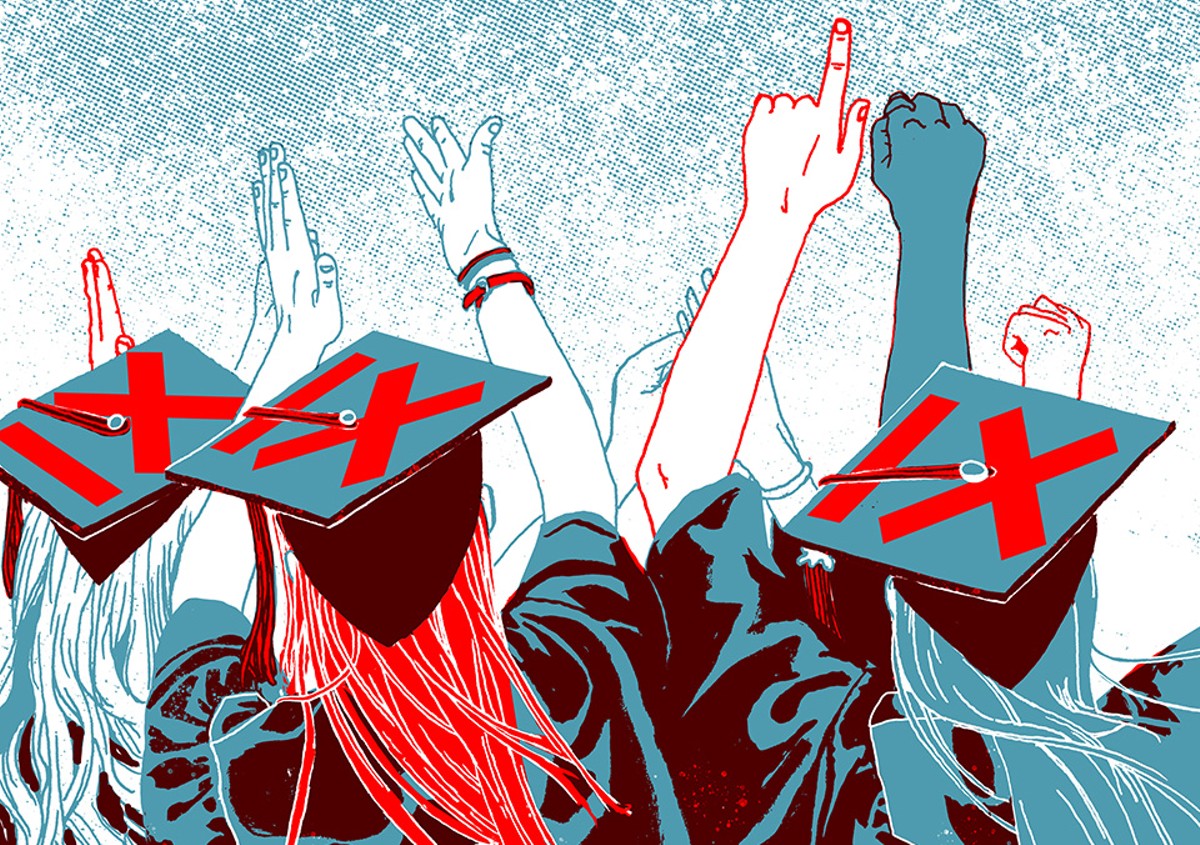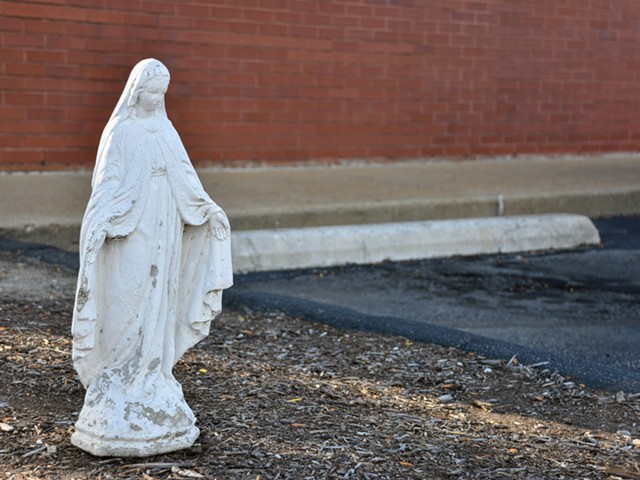No one was supposed to know she was there.
On Tuesday, April 17, at midnight, Nat* quietly packed a bag of clothes, a few books, her backpack and, with permission from Washington University's Office of Residential Life, the small shelter cat she felt she couldn't leave behind. She would spend the remaining five weeks before her college graduation not in the off-campus apartment she had shared with friends for a year, but here, in a secure, secret suite on campus.
Her new place was designed for two, so Nat had a lot of room to herself. It was a bare, white space, the walls devoid of the photographs and posters typical of a college dorm room. Just Nat, the cat and her few bags.
That was, of course, barring the expansive collection of newspaper pages carefully arranged on a small entryway table. In her final weeks of college in this empty, foreign space, this display was what Nat clung to most. When Nat decided to anonymously publicize her story about surviving assault in the campus newspaper, Student Life, she never anticipated that its pages for the remainder of the semester would brim with fellow survivors' stories.
As the drama of the ensuing weeks unfolded, the display served as a visual reminder that she had, almost accidentally, sparked one of the largest student movements the university had ever seen, one that would garner media attention, contribute to a national dialogue on sexual assault and culminate in a rally with hundreds of attendees.
And when it started to feel surreal to the mild-mannered, intellectual girl in the center of it all, that collaged entryway table was proof.
"By the end of it, I had the entire [table] covered in different pieces of newspaper sitting there. There was something tangible about that," Nat says. "I was like, 'Look at this. Look at the effects of things. Look at the echo.'"
Nat's essay, "Not a Threat," arrived in Student Life Editor-in-Chief Sam Seekings' inbox on April 10. He was in the midst of a busy semester studying psychology abroad in Copenhagen.
"Obviously reading through it, looking at it, it was a very, very serious piece and I think we took it very seriously for that reason," Seekings recalls.
Seekings limited initial knowledge of the op-ed to himself and two managing editors. For the next six days, the three engaged in a series of tough discussions.
"I was thinking about the same questions that a lot of journalists and journalism publications go through," Seekings says. "Is this something we should publish? Is this something we should publish anonymously? Can we verify various things in this? If so, how are we going to do that? Is this feasible? The time frame, that kind of thing."
By the time Washington University's almost 8,000 undergraduates woke up the following Monday, the 616-word account was live on Student Life's website. In it, Nat alleged that there was a serial assailant on campus, one whom the Office of Residential Life, the Title IX Office and Washington University Police Department had all received reports on over the course of several months. She wrote that he'd physically attacked her, yet the campus bureaucracies seemed incapable of responding. She'd written the op-ed, she wrote, after learning that another female student had accused the young man of rape.
On the day her story came out, Nat was eating lunch at a campus dining hall. She glanced at her phone. There was a message from a friend who knew she had authored the piece: "You should know there's 200 people in a GroupMe organizing a rally about this. Do you want me to add you?"
Nat rose from the table mid-conversation, her dining companion watching in confused silence as she walked to a nearby pile of Student Life copies and, returning to the table, flipped to the article, which she passed across the table to her friend. As she read, her friend's eyes grew wide.
Nat joined the GroupMe texting group, which had been started by women in the Alpha Phi sorority. That evening, the chat reached capacity at about 600 members.
"People were just talking and it was great. It caught fire," remembers Rachel*, then a sophomore.
Between 9 p.m. and 5 a.m., Nat, Rachel and more than a half-dozen other students gathered to organize the movement. They transitioned from GroupMe to Slack, a website often used to streamline workplace communication.
Nat set up an anonymous profile on Slack, officially adopting the moniker "Nat," an acronym for "Not a Threat." Within the next few weeks, Nat says, as many as twenty survivors reached out to her profile seeking advice and counsel.
That night, the women committed to making the organization as inclusive as possible. They wanted to create a survivor-centered space where anyone would feel a call to action, a sense of agency and a right to claim the movement as their own.
On Wednesday evening Nat and several others held their first real public-facing meeting. One leader estimates that at least 40 individuals came to the two-hour gathering.
Luka Cai, then a sophomore international student from Singapore, is a member of Pride Alliance, a campus organization focused on LGBTQ educational, social and activism programming.
"Monday I felt really helpless when the op-ed was published. It was really the first time in my life when one issue or one article took over my mind and I couldn't stop thinking about it," Cai says. "And I was just walking around campus in this daze, in this cloud of like, something this horrible can happen on a campus where everybody just goes around doing their own thing not talking about it."
Cai found Wednesday's meeting cathartic. Attendees split into smaller groups to discuss sexual assault at Wash U. In the next few days, the group chose a name: "Title Mine," a riff on the federal Title IX laws that govern allegations of sexual assault. It scheduled an April 26 rally. And over the course of planning meetings that lasted up to six hours, the movement's leadership shifted. A new crop of organizers became involved; Cai absorbed additional responsibilities a few weeks later.
"The original leaders said, 'OK, we started this movement but we acknowledge that we don't know the most about these issues on campus and how they've been addressed. So we want to hand the reins over to people who have been fighting the fight for a longer time,'" Cai says.
Group leadership is "porous," Cai says — there are no specific roles and no set number of leaders (various members provide numbers between five and twenty).
"I think one of my favorite things about the group is how open we are," Cai says. "I feel like we're not afraid to take as long as we need to exchange diverse perspectives."
Once the basics were set, discussions about public relations began. The group created a Facebook event and a Change.org petition, which gathered 1,000 signatures within days. Members also flyered campus, including the doors of the Title IX Office.
And that was all before the second article hit.






